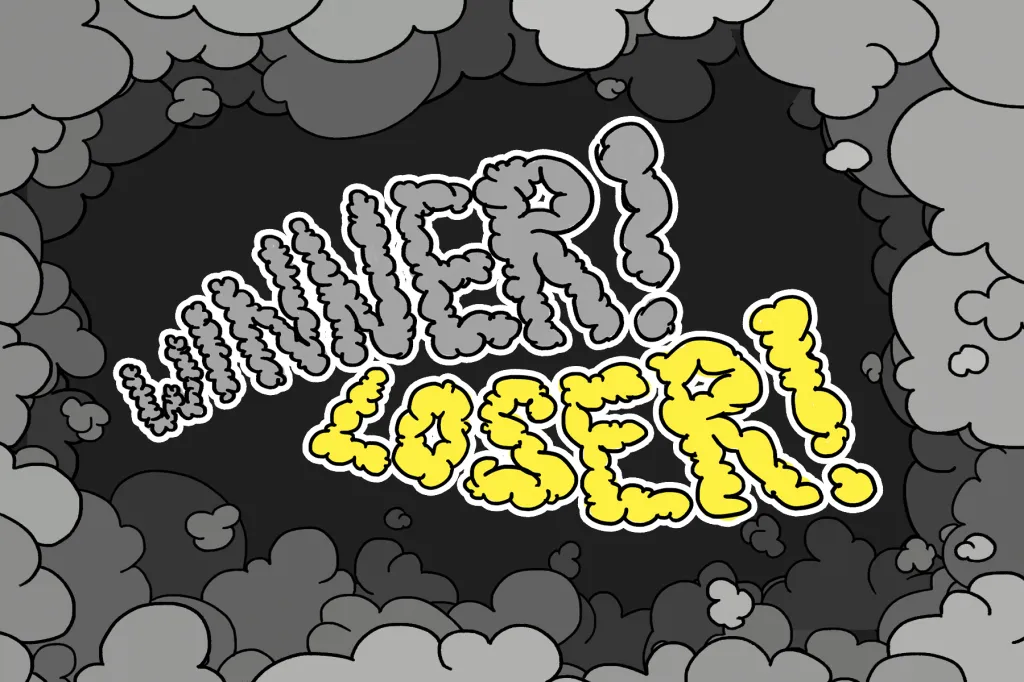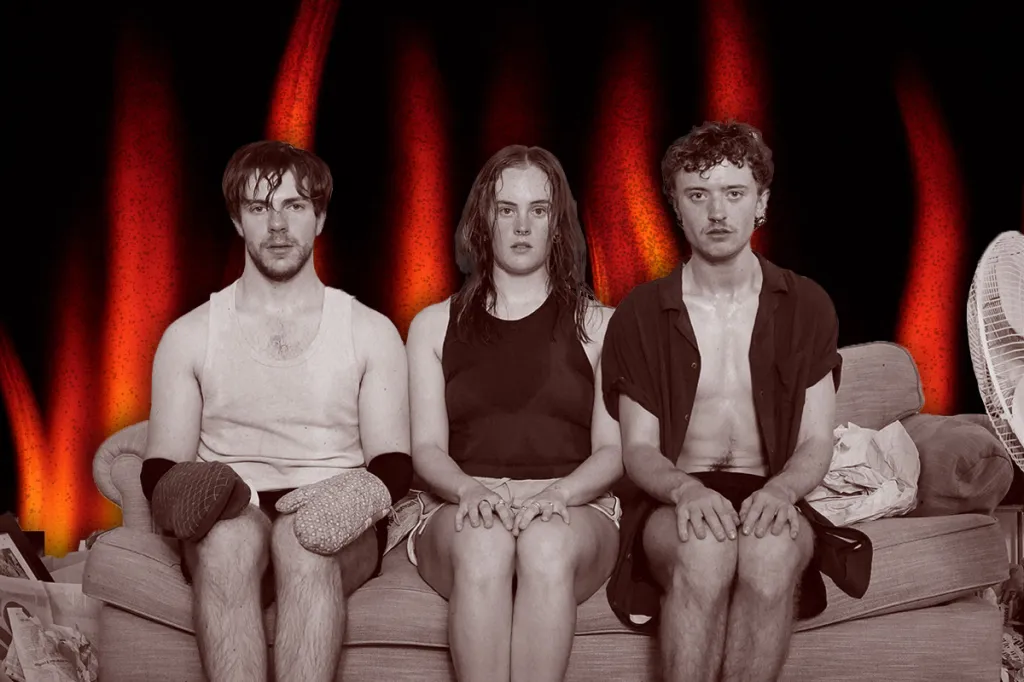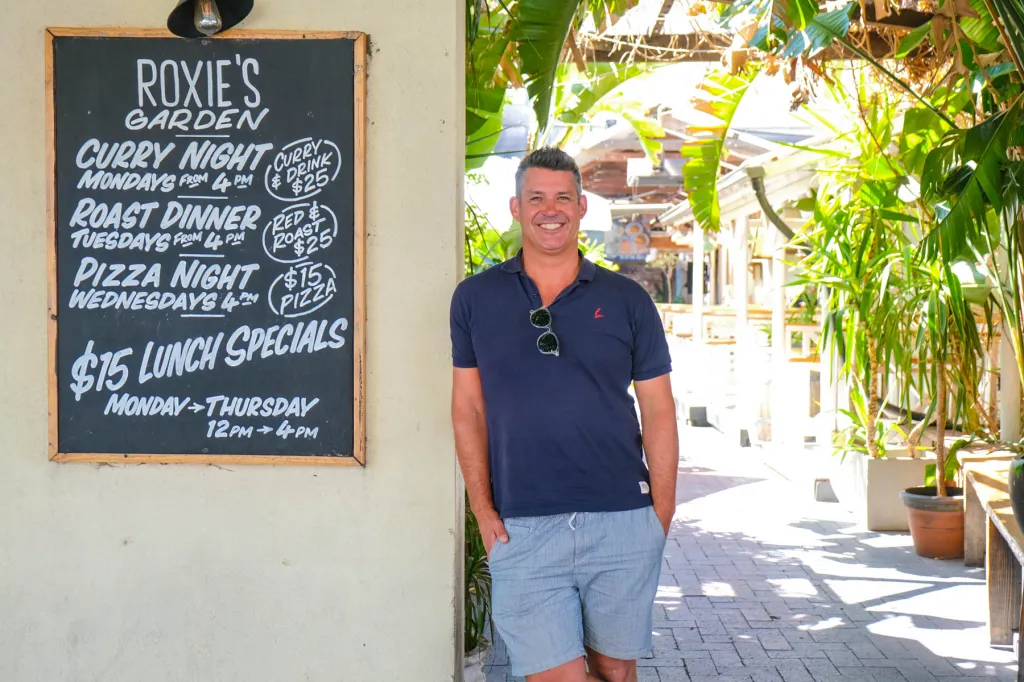How pokies changed the pub

CityMag travels back to the 90s to observe how gaming rooms influenced the hospitality industry, and some of the players who are keeping an old-school pokie-free approach.
When Jade Flavell, Liz O’Dea and the late Emily Trott bought the Wheatsheaf Hotel in 2002, a pub without a gaming room, it was perceived by the banks as being worse than a startup.
“The conventional wisdom at the time was that non-pokie pubs couldn’t make money,” Jade tells CityMag over a pint.
Jade says they were unwavering, valuing a live music and community pub over one with a gaming room.

“To my way of thinking that’s the opposite of hospitality, pokies is the antithesis of hospitality,” she says.
“Traditionally and for as long as I’ve been in pubs, which is over 30 years, there’s kind of been this understanding that people always need a beer, they always need to go to the pub, they go to the pub to celebrate, they go to the pub to commiserate.”
This sanctity of the pub was infiltrated in May 1992, when the Bannon Labor Government legalised poker machines amid pressure to find sources of government revenue after the State Bank collapse.
“I think there was a lot of push back against pokies at the time,” Jade says.
“There were venues closing at the time as well, and a lot of band rooms that used to be band rooms were turned into pokie lounges, so there was a lot of people who said ‘no bugger this, this is not where we want our culture to be’.
“We’re going to get the culture we deserve if we don’t protect what we’ve got.”

Currently in South Australia, under the Gaming Machines Act 1992, $20 million of gambling revenue per year goes into a Community Development Fund and is spent on government health, welfare or education services.
The Community Development Fund was added to the Gaming Machines Act in 2002. Of that $20 million, the act specifies $850,000 from the Community Development Fund must be spent on programs that benefit the live music industry each year.
You might like
The $850,000 goes to the Music Development Office, so CityMag asked Arts Minister Andrea Michaels what this funding went towards in the last financial year.
“This fund is dispersed in its entirety each year and enables programs such as the Contemporary Music Organisations Funding, Robert Stigwood Fellowship Program and Project Support Grants that continue to support the live music sector,” Michaels says.
A government spokesperson told CityMag the Malinauskas government “has invested more than $70 million in additional arts funding since coming to government, including $5 million for the live music sector, with funding going directly to venues to cover the costs of hosting live music and encouraging them to engage artists”.
In the financial year 2023–24, the net gambling revenue was $955.80 million.
While there is some funding flowing to the live music sector as a result of having pokies in pubs, other challenges that arose at the time include musicians competing for attention, and the loss of distinct music scenes.
Local musicians starting out on the pub circuit at the time, like Dr Paul ‘Nazz’ Oldham who is now a popular music culture academic, felt the pressure to compete with pokies for an audience.

“There just used to be a lot more pubs around Adelaide, where you would be able to gig,” Nazz says.
“Now you have pokies as a distraction, and very quickly that pub becomes just pokies and then all of these kind of peripheral scenes go. It was very much like the suburban experience interrupting the city.
“For instance, if I travelled to do country gigs or gigs in the suburbs, it was not unusual for there to be some pokie machines in there, but you sort of accepted it and there was still a big love for live music, whereas in the city, if it came in, it was one or the other.”
While the same went for TV screens with sports coverage, Nazz says the pokies were “a fairly easily identifiable enemy because the two things didn’t coexist”.
CityMag initially thought – somewhat naively – that today musicians would battle sports betting or the mobile casinos that live in our pockets more than anything else.
While Flinders University Researcher and Clinician Dr Ben Riley says that gambling addiction skyrocketed when pokie machines were originally introduced in pubs, pokie machines are still over-represented in problem gambling, followed closely behind by internet betting.
“We also know that 40 per cent of the expenditure in pokie machines comes from people with a problem,” Ben says.
When we asked if Gen Z are victims to the pokies as much as their parent’s generation, Ben says addiction “doesn’t seem to discriminate” by age or gender.
Ben explains it’s not just the random reinforcement from the machines themselves that are the appeal.
“A lot of people are attracted to the environment, the setting, not necessarily the flashing lights but somewhere that’s safe to go out on their own.”
Ben told us visiting a gaming room alone is one of the early warning signs of addiction.
“You can go on your own, you don’t need to be a member, you can go any time of the day or night,” he says.
“It has a club-type atmosphere, you can walk in there and it’s cozy and you can sit and play a machine, so I understand there’s the attraction of that being available to people, and it’s hard to compete with that.
Subscribe for updates
“If that was available in another setting, like a poetry night or something else that catered to that, that would be attractive.
“I think there’s an appetite in the community for pubs not to have pokie machines, even myself and in my circles a lot of people see a pub with no machines and say ‘that’s great!’
“I know it’s an easy way for pubs to make money, but I think there are opportunities for hospitality sectors to think about other ways to generate revenue.”

The influence of the pokies affected pubs beyond those with live music offerings.
The past decade saw some walk this back, with the Gilbert Street Hotel, Saracens Head and the former Electra House all swapping their pokies for modern fit-outs and elevated service offerings.
Co-owner of The Scenic Hotel Jay Marinis says their team are “trying to think laterally about how [they] can create really healthy environments” and “really healthy businesses”.
“That support the community rather than taking from it,” Jay says.
“And you know, while you have these hotel chains that have these pokies, they’re creating mental ill health.”
An initiative from The Scenic is their Topsoil program, which is a farm-to-table approach targeted at community members that struggle with mental ill-health.
“We would much prefer to pay people that are doing good things,” co-owner Alistair Wells says.

Alistair compares this to an alternative model.
“Which is serve really shit food that’s trucked in from other states, and then steal people’s wages through gambling revenue to sustain the business,” he says.
Alistair says their method is an “opposite way of doing things”.
“Lots of businesses in the hotel game are, you know, recession-proof and cost of living-proof because they have that ability to – behind closed doors which more often than not – have a pretty much unregulated gambling side hustle which supports everything else they do,” he says.
“We are trying to do the opposite of that, but not in this like Robin Hood type thing,” adds Jay.
“We’re actually just trying to create a sustainable business so that we can survive as well.
“We would love to be able to be these cloak and dagger people that have a hotel, but we couldn’t fucking sleep at night, right?”
If you need immediate help with gambling support, call the helpline on 1800 858 858 or visit gamblinghelponline.org.au.
This article first appeared in The Game Edition of CityMag.


